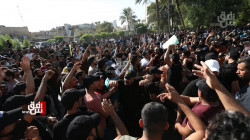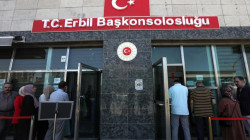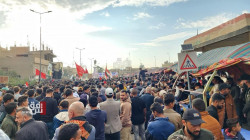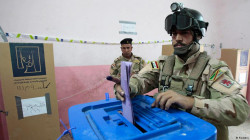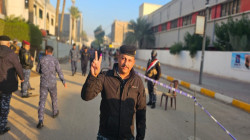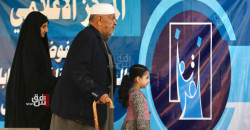Iraq’s next election: A test of unity or division?
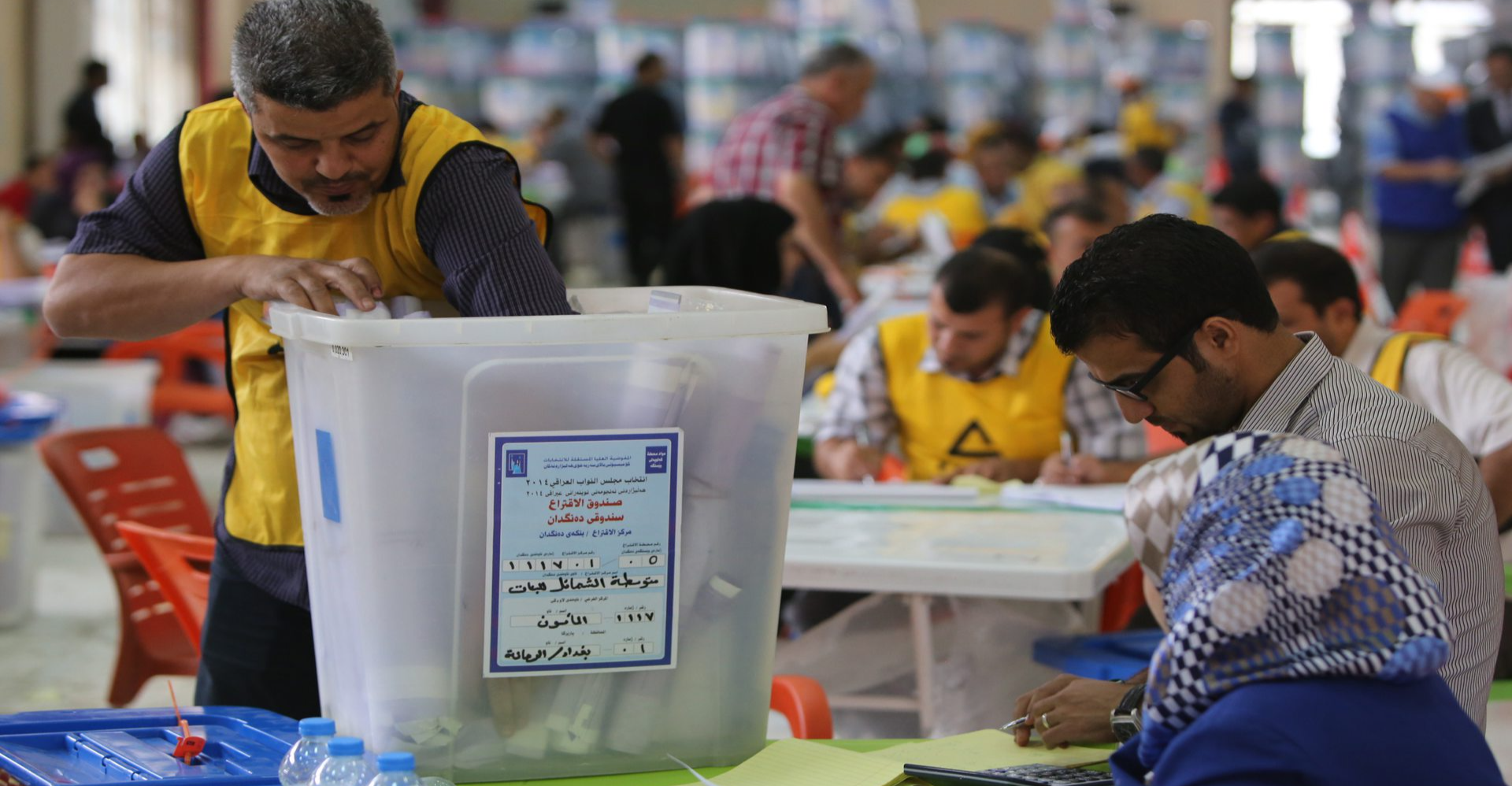
Shafaq News/ The evolution of Iraq's electoral system reflects the country’s shifting political landscape, from the authoritarian rule of Saddam Hussein to a post-2003 framework deeply influenced by sectarian power-sharing, an approach that contrasts with democracies where elections are driven by policy and progress.
From Dictatorship to “Sectarian” Democracy
Before the US-led invasion, Iraq’s elections under the Baathist regime were largely symbolic, serving as a means to reinforce Saddam Hussein’s grip on power rather than facilitating genuine political competition. The Baath Party maintained strict control, suppressing opposition voices and consolidating authority through a centralized system. While sectarian divisions were not a defining feature of electoral politics at the time, state policies disproportionately targeted Shiite and Kurdish populations, curbing their political influence.
However, following the fall of Saddam Hussein, Iraq’s political system underwent a dramatic transformation. The 2005 parliamentary elections introduced a list-based system, in which voters chose from registered political parties and coalitions. A total of 228 lists, including 21 coalitions, participated in the elections, with political groupings increasingly organized along sectarian and ethnic lines.
The newly established framework saw the emergence of key blocs such as the Shiite-led United Iraqi Alliance, the Kurdish blocs comprising the Kurdistan Democratic Party (KDP) and the Patriotic Union of Kurdistan (PUK), and various Sunni coalitions seeking representation in the new government.
This power-sharing arrangement, known as "muhasasa," was designed to ensure inclusivity and prevent the marginalization of any group. However, it also introduced significant challenges.
By institutionalizing sectarian identities within the political system, the muhasasa model contributed to political gridlock, widespread corruption, and the persistence of elite dominance. Critics argue that this structure has fostered a “closed system of elite rule,” where political figures remain in power regardless of their performance, leading to inefficiencies and a lack of accountability.
While this model has succeeded in mitigating large-scale sectarian violence, it has inadvertently reinforced divisions, making it difficult to cultivate a unified national identity. Disputes over resource distribution, particularly concerning oil revenues and federal budget allocations, have further deepened these divides.
Despite its flaws, proponents of the muhasasa system argue that it remains a necessary compromise in a country with deep historical and sectarian divisions. By offering all groups a stake in governance, it provides a platform for political participation.
Faith, Politics, and Conflict
The role of religion in modern Iraq has become increasingly complex, particularly in the aftermath of the 2003 US-led invasion. What initially manifested as political and administrative turmoil soon spiraled into violent sectarian conflict. Armed groups, defined by religious affiliations, rose to prominence, while extremist organizations like ISIS exploited these divisions for their own gain. Moreover, many political leaders further deepened these rifts by using religious rhetoric to rally their bases, reigniting tensions that had long simmered beneath the surface.
The consequences were devastating—widespread bloodshed, mass displacement, and a fractured national identity.
Speaking to Shafaq News, rights activist Sara Jassim emphasized that “religion in Iraq is not just a matter of personal faith but an essential part of our national identity, shaping social values, relationships, and even political choices.” However, she cautioned that the exploitation of religion for political gain threatens to unravel the very fabric of Iraqi society, assuming that “the memory of religious coexistence and intellectual exchange stands in contrast to today’s landscape of division and conflict.”
Sectarian Rhetoric and Political Dynamics
The Head of the Australian Arab Center for Studies, Ahmad Al-Yasiri, explained to Shafaq News that “the political dynamics in Iraq are shaped by three main forces: the pull of international pressures, the balance influenced by sectarian contexts, and the competition driven by partisan interests.”
He believed that “the current phase in Iraq is witnessing strong political polarization due to the situations in Syria, Lebanon, and Gaza, as well as pressure on Iran. This will likely prompt political forces to amplify sectarian rhetoric in the upcoming elections in order to shield themselves from popular anger and external threats.”
Al-Yasiri also pointed out that “the policies of former US President Donald Trump toward Iraq will play a significant role in shaping the positions of political parties, as Trump has not yet separated the Iraqi file from the Iranian one, which could push some factions to seek protection through sectarianism to preserve their political influence.”
Besides, observers predict that Iraqi political parties will compete in the upcoming elections across three main axes: a Shiite sectarian axis aligned with Iranian influence, a Sunni sectarian axis supported by Gulf states, and a national Iraqi axis aiming to distance itself from regional polarization. These observers believe that parties running on sectarian platforms will likely fail, as the Iraqi people have grown increasingly opposed to sectarianism after paying a heavy price for it.
In this context, Khaled Walid, spokesperson for the “Nazel Akhdh Haqi” (I am Taking my Right) movement, told Shafaq News, “Sectarian coalitions are met with widespread discontent from the Iraqi public, as sectarian quotas have caused significant damage to the country across various sectors, at a time when the region is undergoing geopolitical changes and facing major international pressures,” adding, "Sectarian rhetoric has brought nothing but calamities to Iraq, leading to societal, political, and economic divisions.”
The solution, according to him, lies in strengthening the concept of nationalism, reconciliation, and unified Iraqi identity, warning that some politicians are “exploiting the elections to rally their followers through sectarian discourse,” ignoring the importance of building a national state that transcends these divisions.
Meanwhile, independent politician Fattah Al-Sheikh expressed skepticism about the possibility of holding the elections on their scheduled date in October 2025, pointing out that Iraq’s political situation is tense due to US pressures, which could delay the elections.
Addressing the causes of the return of political parties to sectarian positions, he explained to Shafaq News that it is a “sign of their failure to present genuine programs, forcing them to resort to stirring sectarian sentiments to attract their base.” Providing examples, Al-Sheikh said that “the Coordination Framework is seeking Shiite support, while Sunni parties are trying to woo their constituency.”
Al-Sheikh argued that Iraq faces two major challenges, “the sectarian polarization that Iraqis have already paid a heavy price for in the past, and the international and American scrutiny of the elections, where any sectarian trend will be classified as linked to Iran.”
Amid these challenges, many within Iraqi society advocate for a political path that respects the country’s rich religious and cultural heritage while rejecting its manipulation for partisan gain. The key question remains whether Iraq can move beyond sectarian-driven politics and embrace a truly national vision, a challenge that remains unresolved.
